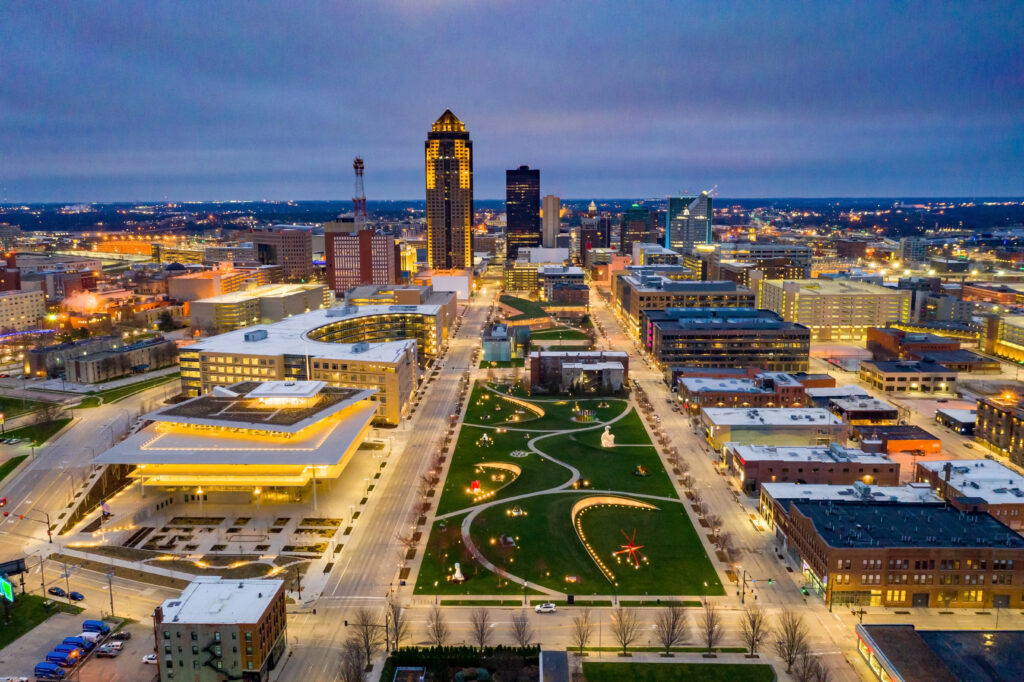Worker shortage, Midwest entrepreneurism top Atlantic summit in East Village

PERRY BEEMAN Sep 20, 2018 | 6:50 pm
3 min read time
598 wordsAll Latest News, Innovation and Entrepreneurship, The Insider NotebookThe Atlantic magazine and Wells Fargo teamed to stage a full-morning discussion of the future of the Heartland at Curate, and it appeared if we can find workers, support immigration and fight off the erroneous thought that all tech startups belong in California, Des Moines and other Midwest cities are in for a wild ride of success.
That’s the word from a string of panelists that featured the big-thinking, book-writing brains of AOL co-founder Steve Case, former Oklahoma City Mayor Mick Cornett, St. Paul Mayor Melvin Carter and others.
Let’s go straight to the best sound bites and highlights:
— Case said Des Moines is a favorite stop for him, and the city is among those well-positioned to succeed in the next wave of tech. Among the challenges: “How do you battle for talent? Capital follows talent.”
But no one in Greater Des Moines should cede tech development to the coasts, he added.
While valuations can be lower for startups in middle America, once they go public “no one cares where they are.” He noted that Dwolla opened a Silicon Valley office to appease investors but now has scaled that back “and doubled down in Des Moines.”
He added of startups: “This is the best investment opportunity of all time. The vast majority of net new jobs in the country are young, high-growth companies.”
— South Bend, Ind., Mayor Pete Buttigieg said cities the size of South Bend, or even the larger Des Moines, “are in a real sweet spot.” They are big enough to have an attractive quality of life, and when they face the typical urban issues, they are more nimble in addressing them.
“We positioned ourselves as a beta city, where people can try things,” Buttigieg said. “We have the smartest wastewater system in the world, run by sensors. The dockless bike shares started in South Bend.”
— Carter said his city values its quality of life and is working to address disparities. St. Paul recently ended overdue library fees (his comment brought the first applause of the day). The fees amounted to $33 a person per year. “It was a real hard decision until I realized we really want people to read,” Carter said with a smile.
Later, in a discussion of diversity, he added: “Half of St. Paul is people of color. That is not a challenge, it’s the key to opening the door to the type of global economy we should have in St. Paul.”
On a lighter side, he offered this quip when asked to bust a Midwest myth: “The biggest myth I hear is that people get this idea that it’s all cold in the Midwest. But they show up with their hats and gloves and mittens and they found out there is nothing but opportunity.”
— Cornett challenged Oklahoma City residents to get in shape, and 47,000 lost a combined 1 million pounds. Cornett lost 40 pounds, and he followed up by making sure recreational trails, sidewalks and park improvements were installed to encourage activity. He said many city issues come down to partnerships. “It’s amazing what you can accomplish when so many people are pulling on the same rope.”
Tariffs and hot sauce
It’s not just Iowa soybeans caught in the middle of tariff fights. At one of the Atlantic panels, Taufeek Shah, owner of Lola’s Fine Sauces of West Des Moines and Lola’s Fine Kitchen of Ankeny, told the Atlantic conference that Chinese tariffs are preventing his company from selling its hallmark hot sauce in that country. Lola’s sells all over the United States and in Canada.
That’s the word from a string of panelists that featured the big-thinking, book-writing brains of AOL co-founder Steve Case, former Oklahoma City Mayor Mick Cornett, St. Paul Mayor Melvin Carter and others.
Let’s go straight to the best sound bites and highlights:
— Case said Des Moines is a favorite stop for him, and the city is among those well-positioned to succeed in the next wave of tech. Among the challenges: “How do you battle for talent? Capital follows talent.”
But no one in Greater Des Moines should cede tech development to the coasts, he added.
While valuations can be lower for startups in middle America, once they go public “no one cares where they are.” He noted that Dwolla opened a Silicon Valley office to appease investors but now has scaled that back “and doubled down in Des Moines.”
He added of startups: “This is the best investment opportunity of all time. The vast majority of net new jobs in the country are young, high-growth companies.”
— South Bend, Ind., Mayor Pete Buttigieg said cities the size of South Bend, or even the larger Des Moines, “are in a real sweet spot.” They are big enough to have an attractive quality of life, and when they face the typical urban issues, they are more nimble in addressing them.
“We positioned ourselves as a beta city, where people can try things,” Buttigieg said. “We have the smartest wastewater system in the world, run by sensors. The dockless bike shares started in South Bend.”
— Carter said his city values its quality of life and is working to address disparities. St. Paul recently ended overdue library fees (his comment brought the first applause of the day). The fees amounted to $33 a person per year. “It was a real hard decision until I realized we really want people to read,” Carter said with a smile.
Later, in a discussion of diversity, he added: “Half of St. Paul is people of color. That is not a challenge, it’s the key to opening the door to the type of global economy we should have in St. Paul.”
On a lighter side, he offered this quip when asked to bust a Midwest myth: “The biggest myth I hear is that people get this idea that it’s all cold in the Midwest. But they show up with their hats and gloves and mittens and they found out there is nothing but opportunity.”
— Cornett challenged Oklahoma City residents to get in shape, and 47,000 lost a combined 1 million pounds. Cornett lost 40 pounds, and he followed up by making sure recreational trails, sidewalks and park improvements were installed to encourage activity. He said many city issues come down to partnerships. “It’s amazing what you can accomplish when so many people are pulling on the same rope.”
Tariffs and hot sauce
It’s not just Iowa soybeans caught in the middle of tariff fights. At one of the Atlantic panels, Taufeek Shah, owner of Lola’s Fine Sauces of West Des Moines and Lola’s Fine Kitchen of Ankeny, told the Atlantic conference that Chinese tariffs are preventing his company from selling its hallmark hot sauce in that country. Lola’s sells all over the United States and in Canada.









